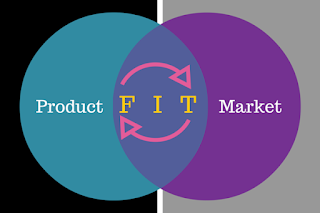Team vs Product vs Market: What Makes Or Breaks A Startup?
Sometime last year, I came across a blog from 2007-2009 by Marc Andreessen, the popular and widely successful Silicon Valley innovator who co-founded companies like Netscape, which created the first widely used web browser, and a venture capitalist who was an early investor in trillion-dollar and multi-billion dollar companies like Facebook, Coinbase, Roblox, and AirBNB among many others through his venture capital firm Andreessen Horowitz.
One of the articles which really grabbed my attention and stoked my interest was his view on what is the most important element in the early success of a tech startup; team, product, or market. You can read the article here. Andreessen defines the elements as follows:
- Team- the suitability of the CEO, senior staff, engineers, and other key staff relative to the opportunity in front of them. According to Andreessen, when judging the potential of a team to execute its mandate, he considers "effectiveness" over "experience" because most successful startup teams have been made up of members who had never "done it before" but still had the expertise to build a magnificent product.
- Product- how impressive the product is to one customer or user who actually uses it: How easy is the product to use? How feature-rich is it? How fast is it? How extensible is it? How polished is it? How many (or rather, how few) bugs does it have?
- Market- the number, and growth rate, of those customers or users for that product.
Then there is an argument for the product. Startups are well, started to build products that customers will buy and use and the startup can generate revenue in the process. So with that in mind, the quality of the product comes out of the top as the most important determinant of the success of a startup, right? Nope. Well, according to Andreessen that is.
He considers the market as the most important factor in the success of a startup. According to him, "In a great market—a market with lots of real potential customers—the market pulls product out of the startup"
Basically, the market is always waiting for the first product to address a particular pain point, regardless of how barely functional the product is i.e. the minimum viable product (MVP). As the product has to just work, correspondingly, this means that the engineering team does not need to be perfect too. And hence the justification for a ready-market as the most important element in a startup's success comes full circle.
Andreessen goes on to state that in a terrible market, you can have the best product in the world and an absolutely killer team, and it wouldn't matter—you’re going to fail. You will break your pick for years trying to find customers who don’t exist for your marvelous product, and your wonderful team will eventually get demoralized and quit, and your startup will die.
A ripe market is what will always propel you quickest towards attaining product/market fit which is where you want to be as a startup. Product/market fit simply means being in a good market with a product that can satisfy that market. That, right there, is the sweet spot for startup success.
Of course, this is all but one man's opinion on what makes a startup successful though it would be fair to state that the man does have an impressive resume in all things concerning startups. I'd love to hear your opinion on what determines whether a startup fails or succeeds. Leave me a comment below!
PS: You can download a PDF version of Andreessen's posts from that old blog here



For example, should you hit three or extra scatter symbols, you will set off a spectacular bonus function the place you’ll get the possibility to spin the wheel of fortune and win considered one of six bonuses. Hence, that means that you have got} huge winning possibilities comparability with} classic slots. Video slots have further options, such as free 점보카지노 spins, which make the sport extra fascinating.
ReplyDeleteWhat a great post!
ReplyDelete